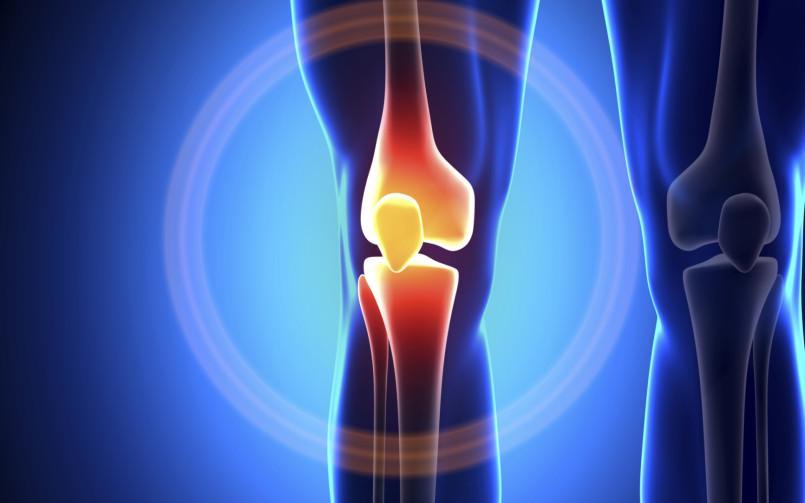Are you suffering from articular cartilage knee pain? Your knees are complex joints, essential for everyday activities, from walking and running to standing and bending. At the core of each knee joint is articular cartilage, a smooth and resilient tissue that covers the ends of your bones where they meet at the joint.
This cartilage is crucial because it allows your bones to glide over each other without friction, facilitating smooth movement while also absorbing the shock from daily activities like walking and jumping.
However, when this cartilage becomes damaged due to injury or wear and tear, it loses its ability to protect the joint effectively, leading to pain, inflammation, and reduced mobility. Fortunately, stem cell therapy offers a promising solution by potentially regenerating the damaged cartilage, helping restore its function and providing long-term relief from knee pain.
What is Articular Cartilage and Why Does It Matter?
Articular cartilage is made up of a strong, flexible structure primarily composed of water, collagen, and proteins called proteoglycans. This combination gives the cartilage its ability to keep its shape and provide a smooth surface, allowing your joints to move without friction. However, even though this tissue is tough, it’s not immune to damage, especially in your knee joints, which bear much of your body’s weight.
Over time, or as a result of injury, this cartilage can break down. Several factors can lead to this damage, including:
Aging
As you get older, your cartilage naturally begins to wear down and lose its flexibility, making it more prone to damage.
Obesity
Extra weight puts more pressure on your knee joints, speeding up the wear and tear on the cartilage.
Repetitive Stress
Activities that involve repeated knee movements, like running or certain sports, can cause small injuries that build up over time, leading to significant damage.
Traumatic Injuries
Sudden impacts or twists to the knee, such as those from accidents, can cause the cartilage to tear or wear away.
Understanding these factors highlights the importance of taking care of your knees, as damaged cartilage can lead to pain and reduced mobility. When this damage occurs, exploring treatments like stem cell therapy could be a promising solution to help repair and regenerate the cartilage, offering relief and improved joint function.
The Problem with Cartilage Damage
One of the most frustrating aspects of cartilage damage is that it does not heal on its own. Unlike other tissues in your body, articular cartilage lacks its own blood supply, which means it doesn’t receive the nutrients and oxygen necessary for self-repair.
This absence of blood vessels, nerves, and lymphatics is a double-edged sword: while it ensures that cartilage can perform its shock-absorbing functions without interference, it also means that any damage is likely to be permanent if not treated.
When the cartilage is damaged, it can lead to a host of problems, including pain, swelling, reduced mobility, and even long-term joint issues.

What Can Be Done to Address Articular Cartilage Knee Pain?
Given that an articular cartilage knee joint doesn’t heal on its own, it’s essential to explore treatment options that can help manage the pain and potentially restore function.
Several approaches are available, depending on the severity of your damage and specific needs:
- Physical Therapy: Exercises designed to strengthen the muscles around the knee can help reduce the load on the joint, alleviating some of the pain associated with cartilage damage.
- Medications: Over-the-counter pain relievers or anti-inflammatory drugs can help manage the symptoms, though they don't address the underlying problem.
- Injections: Corticosteroid or hyaluronic acid injections can provide temporary relief from pain and inflammation, though their effects are often short-lived.
- Surgical Options: In severe cases, surgical interventions such as microfracture, autologous chondrocyte implantation (ACI), or osteochondral grafting may be considered. These procedures aim to repair or replace the damaged cartilage, but they come with varying degrees of success and recovery times.
While these traditional treatments can help manage the symptoms of cartilage damage, they often fall short of providing a lasting solution. This is where stem cell therapy stands out as a better choice. Unlike other treatments that merely address symptoms, stem cells have the unique ability to regenerate damaged cartilage by transforming into the cells needed to rebuild the tissue.
Why Stem Cells Might Be the Answer
Stem cells have the unique ability to differentiate into various cell types, including cartilage cells, making them a promising option for cartilage regeneration.
Studies have shown that stem cells, when injected into the knee joint, can potentially help repair damaged cartilage. These cells work by reducing inflammation, promoting tissue repair, and even stimulating the production of new cartilage.
For instance, a systematic review published in 2023 in Experimental Orthopaedics evaluated the outcomes of stem cell therapy for knee osteoarthritis. The review analyzed 12 studies involving 539 patients who received single intra-articular injections of stem cells. The results were encouraging, with significant improvements in knee function, pain relief, and overall quality of life. This study highlights the potential of stem cells as a safe and effective treatment for early to moderate knee osteoarthritis.
Additionally, another study published in Cureus in 2022 highlighted the potential of stem cells in cartilage repair. The research discussed how stem cells are promising because they’re minimally invasive and have a higher potential for successful differentiation into functional cartilage repair.
These studies underscore the potential of stem cell therapy as a promising treatment for those suffering from chronic knee pain due to cartilage damage.
Contact GIOSTAR Chicago for Articular Cartilage Knee Pain Treatments
If you’re struggling with persistent knee pain due to cartilage damage and other treatments have fallen short, it may be time to explore the advanced solutions offered by GIOSTAR Chicago. Our clinic specializes in cutting-edge regenerative therapies, including stem cell treatments designed to target the root cause of your knee pain—damaged cartilage.
Our team of experts utilizes the latest research and technology in stem cell therapy to provide personalized treatment plans tailored to your specific condition. Stem cell therapy at GIOSTAR Chicago isn’t just about temporary relief—it’s about giving you the opportunity to regain your active lifestyle without the constant discomfort of knee pain.
Our regenerative therapies are designed to help you achieve better outcomes, whether you’re dealing with early-stage osteoarthritis, chronic cartilage damage, or other joint-related issues.
Contact us today by completing this form or calling us at 844 446 7827 to learn more about our regenerative therapies and how they can help you finally alleviate your knee pain.
About GIOSTAR Chicago:
GIOSTAR Chicago is dedicated to developing the most advanced stem cell-based technologies and providing the best regenerative medicine for people who want to enjoy a healthy and active lifestyle.


